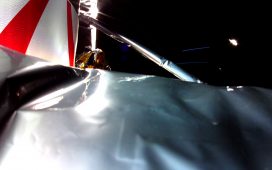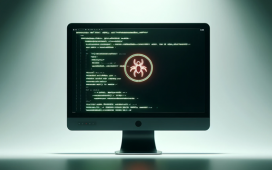TOKYO — Japan will require permits for security-related technology transfers to international students in Japanese universities, Nikkei has learned.
Universities are currently taking less measures compared to companies, with about 40% of universities not undertaking identity checks and other requirements set by the government.
New rules to prevent the transfer of critical technologies outside of the country, such as to China, comes as Japan aims to strengthen its economic security. Japan’s industry ministry is looking to revise notices regarding the operations of the Foreign Exchange Act and implement them by 2022.
Universities will have to gain permission from the industry ministry when teaching critical technologies to foreign students who stay in Japan for more than six months. The rule will apply to students who are under the influence of other countries, such as those who get more than 25% of their income from foreign governments.
Under rules based on the Foreign Exchange Act, universities are required to review any security-related concerns before accepting foreign students and researchers. Matters of concern would include affiliations with organizations involved in developing weapons of mass destruction and funding from foreign governments.
However, security reviews by universities appear to have been slow. According to research carried out by the education ministry and the industry ministry in April involving 320 universities, only 62.5% included pre-screening in their internal regulations at the time of accepting students. The percentage was 97.7% for national universities, 59% for public universities, and 47.7% for private universities. Of the universities involved, 39.4% said they warned foreign students not to take home technologies that could be used for military purposes. The percentage was 33.3% for private universities.
In 2017, a Chinese student studying in a university in Tokyo violated the Foreign Exchange Act by exporting an infrared camera for aircraft to China via Hong Kong.
Research and development in artificial intelligence, quantum cryptography and drone technology could all be used for military as well as private purposes. Many Japanese universities that work on these areas accept Chinese students, for example.
Toshifumi Kokubun, a specially appointed professor at the Research Center for Advanced Science and Technology at the University of Tokyo, suggests that “the outflow of sensitive technology happens on a daily basis”.
There are challenges as Japan does not specify regulated technologies even for non-military uses. It is not clear for universities when they need the permits. In the U.S., a law was enacted in 2018 to restrict exports of technologies in 14 areas including AI and quantum technologies.
The U.S. also has rules that require researchers to disclose if they have received any funding from foreign governments, if they are seeking public support from government institutions in the U.S.
Japan plans to revise the rules on disclosures by researchers in fiscal 2022. It would require researchers to report to their affiliated institutions, such as universities and companies, when they receive funding from external institutions.
“It is important to clarify the technologies that would be regulated,” said Kokubun.






